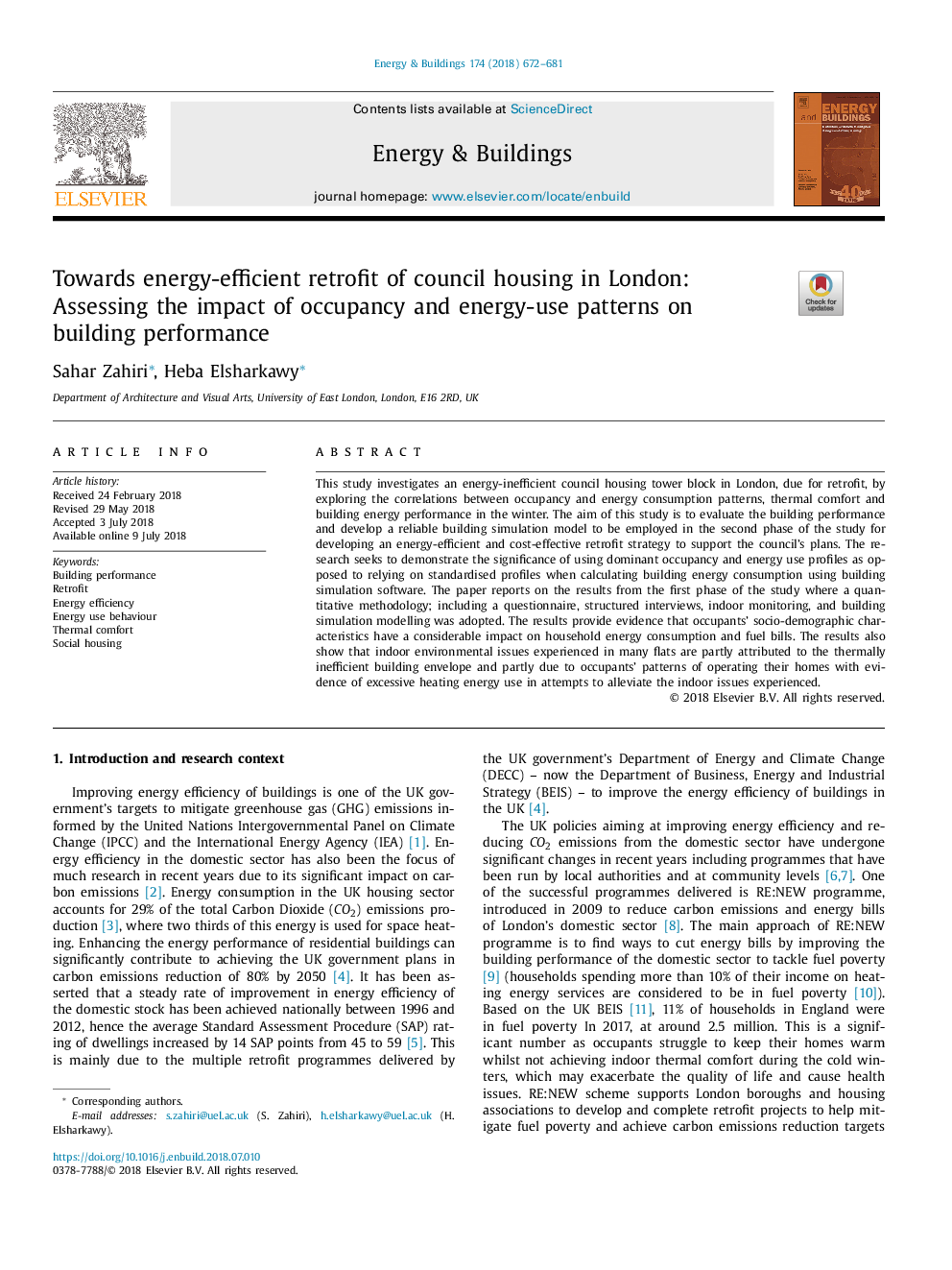| Article ID | Journal | Published Year | Pages | File Type |
|---|---|---|---|---|
| 6727598 | Energy and Buildings | 2018 | 10 Pages |
Abstract
This study investigates an energy-inefficient council housing tower block in London, due for retrofit, by exploring the correlations between occupancy and energy consumption patterns, thermal comfort and building energy performance in the winter. The aim of this study is to evaluate the building performance and develop a reliable building simulation model to be employed in the second phase of the study for developing an energy-efficient and cost-effective retrofit strategy to support the council's plans. The research seeks to demonstrate the significance of using dominant occupancy and energy use profiles as opposed to relying on standardised profiles when calculating building energy consumption using building simulation software. The paper reports on the results from the first phase of the study where a quantitative methodology; including a questionnaire, structured interviews, indoor monitoring, and building simulation modelling was adopted. The results provide evidence that occupants' socio-demographic characteristics have a considerable impact on household energy consumption and fuel bills. The results also show that indoor environmental issues experienced in many flats are partly attributed to the thermally inefficient building envelope and partly due to occupants' patterns of operating their homes with evidence of excessive heating energy use in attempts to alleviate the indoor issues experienced.
Keywords
Related Topics
Physical Sciences and Engineering
Energy
Renewable Energy, Sustainability and the Environment
Authors
Sahar Zahiri, Heba Elsharkawy,
